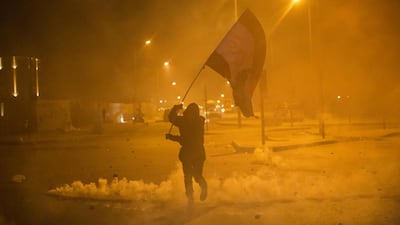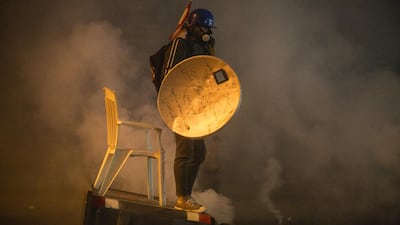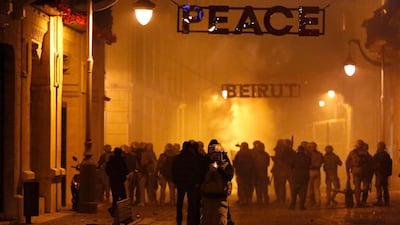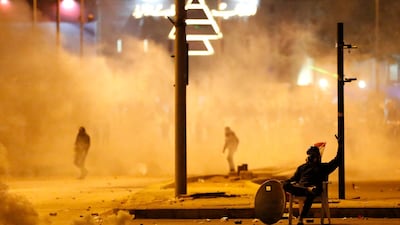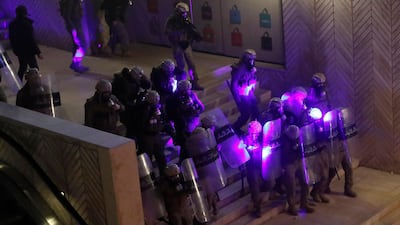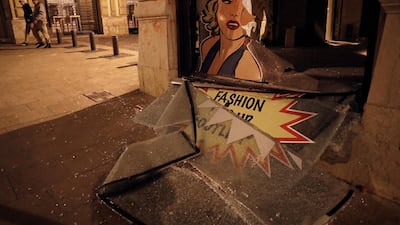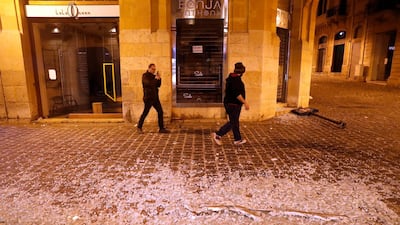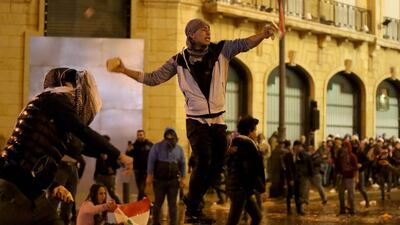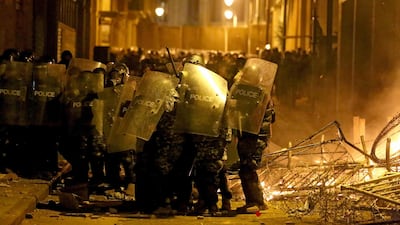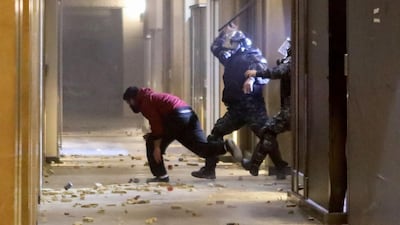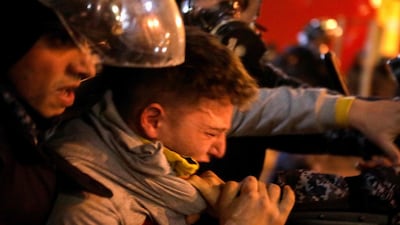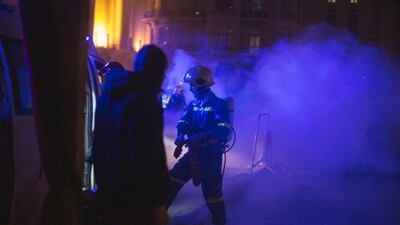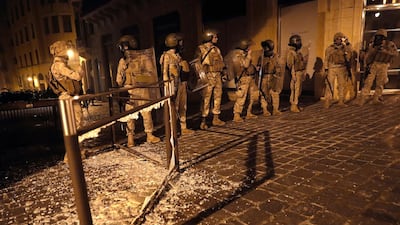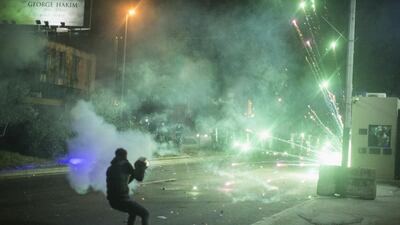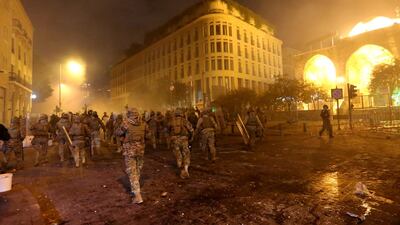On his coffee table are at least 10 types of prescription drugs. Antibiotics, anti-inflammatories and a mouth rinse, to name only a few.
Jean-Georges Prince, 32, must be careful to keep clear of infections. Some of the 56 stitches that were necessary to reconstruct his mouth and chin after a rubber bullet hit him are inside his lower lip.
The advertising professional was one of a dozen people wounded by rubber bullets in Beirut on the evening of January 18 during the most violent stand-off with security forces since anti-government protests started on October 17.
“I can’t eat. I can barely sleep. The pain is very intense whenever the painkillers’ effect fades. But I feel lucky. Some got hit way worse. Some lost their eyes,” he said, speaking slowly and deliberately, his lower face still very swollen. “It’s absurd. Nobody expects to get shot in the face during protests.”
Like other wounded protesters The National spoke to, Mr Prince refused to complain. "This is a revolution of hunger," he said, citing the numerous economic problems that plague Lebanon, including a severe liquidity shortage that led to an outburst of violence against banks, which have curbed cash withdrawals since November.
Protests that began peacefully have turned violent. Young men have descended on Beirut from poverty-stricken pockets, such as Tripoli, using metal bars and rocks to attack security forces guarding Parliament.
They are not happy with their leaders, who formed a new government on Tuesday after 34 days of closed-door negotiations. Ministers were hand-picked along sectarian lines by political parties that are often headed by former warlords from the 1975 to 1990 civil war.
Peaceful protesters such as Mr Prince say they feel empathy for the less well-off demonstrators. They want to keep taking to the streets to maintain pressure for deep-rooted change.
“As soon as my stitches are out, I’ll be back,” he said. “This is the fight of our generation. Our parents were traumatised by the civil war. We are a generation who only know how to live freely. We are not scared of violence because we do not expect it. We’re not going to stop. Either we try to save the country or we lose it for another 30 years.”
Less than a kilometre away, in Saint George Hospital, Michel Razzouk, 47, winced as his stomach wound was cleaned.
The restaurant owner was also shot by a rubber bullet on Saturday evening. Like Mr Prince, his wound has not dampened his spirits. “I was always determined for my country. This is the first time we should take off the clothes we have been wearing during these 30 years. Let’s just let it go,” he said, referring to the sectarian discourse that is prevalent in Lebanese society.
Because the riot police fired from only metres away, the plastic shell on the rubber bullet that hit him did not have time to fall off. Together, the rubber bullet and plastic shell burnt through his stomach fat and lodged there, creating a cavity about five centimetres deep.
“They say it’s equivalent to an impact of one or two tonnes, so it takes your breath out for a few minutes,” Mr Razzouk said. For him, his wound is proof that the police did not respect their own guidelines, which dictate that rubber bullets should be fired from no closer than 10 metres away and no higher than waist level.
The police reject such claims, saying that people wounded above the waist were hurt as they were bending down to pick up stones. Protesters and the police are engaged in a PR battle on social media, blaming each other for the violence.
For Eid Azar, chief of staff at Saint George Hospital, wounds such as the one sustained by Mr Razzouk demonstrate that riot police either chose to hurt protesters intentionally or were not trained properly.
“Either way, this is not something that should be used,” he said, highlighting the “catastrophic” consequences of eye wounds, of which there were at least four on January 18. Two people lost their sight, Human Rights Watch said.
The public outcry seems to have prompted riot police to stop using them for now.
“I hope the pressure will continue so that we will not get these types of injuries any more,” Dr Azar said.

